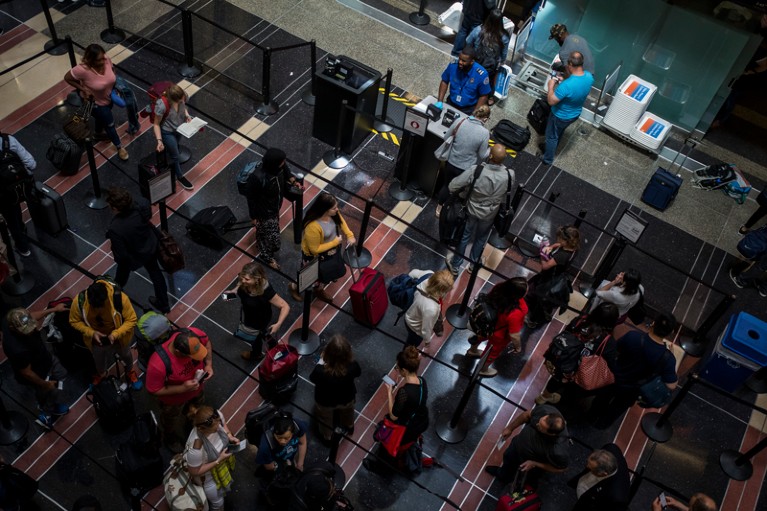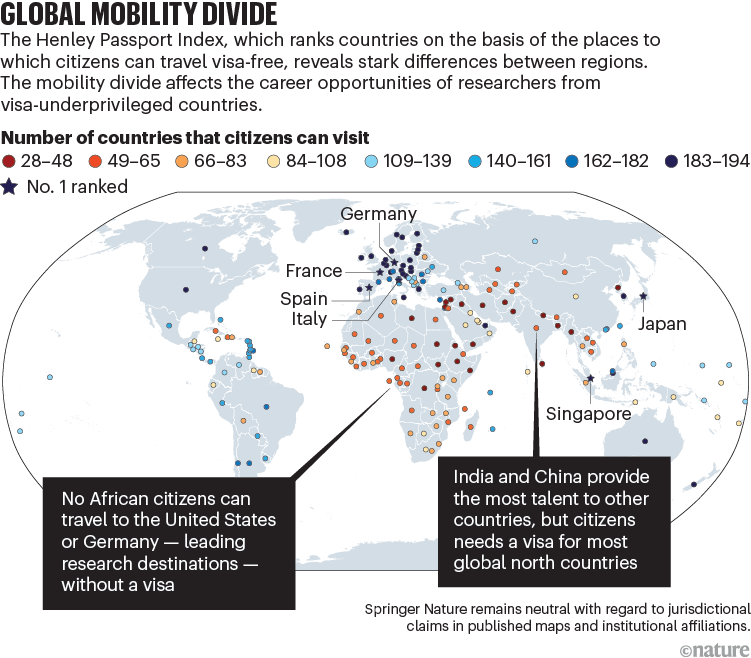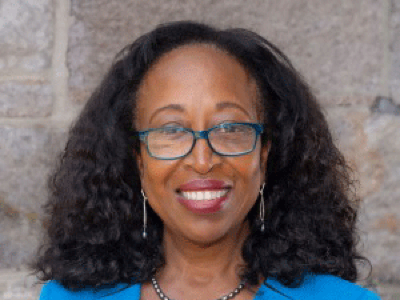[ad_1]
Imagine you want to attend a research conference in the United States this autumn. If you are from most nations in the global north, there’s probably still plenty of time to make arrangements. But, according to our analysis, citizens from 132 of the 134 countries in the global south need a visa to visit the United States, whereas this is true for people from only 20 of the 61 countries in the global north. (See Supplementary information for how we designated global south countries.) And obtaining those visas is not straightforward: as of 4 April, the next available appointment at the US consulate in New Delhi, India, is not until October. It’s February 2025 at the consulate in Cotonou, Benin, and March 2026 in Bogotá, Colombia.
It’s not just trips to the United States that are problematic. Scholars from the global south face obstacles when travelling to many hotspots for scientific research, which include Canada, Japan and most European countries. By contrast, citizens from more than 80% of countries in the global north need no visa to go to Germany or Japan.
Scientists have most impact when they’re free to move
Visa costs are higher for people in economically weak countries than for those living elsewhere1. Citizens of southern Asia must pay almost US$59, on average, for a tourist visa to another country — equivalent to 2 weeks of work for an average earner in this region. Those in sub-Saharan Africa pay $52, equating to 3 weeks’ work. Yet citizens in Western Europe pay less than $18, on average, which could be equivalent to less than an hour’s work.
On arrival in some countries, people travelling from the global south might also have to show months of financial statements and prove that they have received particular vaccinations. They might be denied entry despite meeting these requirements.
Citizenship privilege is an asset experienced by citizens of the global north, simply because of the country they were born in (see ‘Unearned advantages’). As with other forms of privilege, people without it can experience safety concerns and feelings of distress, anxiety, uncertainty and inadequacy2 — in addition to the bureaucratic difficulties. This inequity affects many researchers. It’s time that academics take action to rebalance the scales.
Mobility opens up careers
The expectation that researchers will travel and work internationally is baked into academia. For example, a study of more than 40,000 advertisements for research positions on a European job platform showed that more than 60% listed mobility as a desirable attribute3. This preference stems from the idea that mobile researchers are more productive and have better skills and networks than their less-mobile counterparts, making them more competitive in a fierce job market4,5. Governments, funding agencies and research universities promote mobility in the hope that it will build research capacity and boost economies6.
The pressure to move abroad to build a competitive career is often highest for early-career researchers4. Consider short-term postdoctoral fellowship awards from prestigious organizations, such as the European Commission’s Marie Skłodowska-Curie Actions, the Human Frontier Science Program and the European Molecular Biology Organization (EMBO). These all require applicants to leave the country where they earned their PhD and take a position elsewhere, but the chances for citizens of the global south to work in another global south country are limited. Applicants must instead typically move to the United States or particular European countries.
Most international meetings are located in the same few countries. An analysis of global health conferences held between 1997 and 2019, for instance, found that 71% took place in high-income countries, with 31% in the United States alone7.

Travel and migration are beneficial for researchers’ careers, but many jobs and meetings are based in the global north.Credit: Zach Gibson/Getty
Together, these factors make travel and migration beneficial for researchers’ careers — especially if that movement is to or between global north countries. Indeed, one study indicates that 82% of researchers who move between countries for their first postdoc are destined for the global north8. The United States is the most common destination, but the United Kingdom, Germany and Switzerland are also popular8,9.
Even after a move, academics from the global south remain at a disadvantage. Foreign researchers are more likely to face bullying and harassment from mentors than are domestic researchers, and they are less likely to report it because of the threat that their visa will not be renewed. Visa inequity can cause anxiety, stress and depression10. All foreign nationals on visas are vulnerable, but scholars who have identities that make them susceptible to encountering intersecting forms of discrimination are at a greater disadvantage and thus in a more precarious position.
Close the gaps
Six steps can help to redress the balance.
Universities should educate their employees about citizenship privilege, to help reduce hiring biases. Institutional leaders should advocate for change and ensure that their human-resource and international-service offices are staffed by people who understand citizenship privilege and the lived experiences of immigrants. This would help immigrant scholars facing language barriers, financial pressures, homesickness and cultural shock11.
Why the mental cost of a STEM career can be too high for women and people of colour
Academic institutions should help students and researchers to offload visa paperwork to trained administrative staff. Too often, institutions assist incoming international scholars with visa sponsorships, but leave academics who are already in a post to fend for themselves when it comes to visa renewals or complications. Institutions should establish safeguarding frameworks to prevent bullying. And they should lobby for and adopt visa types that provide researchers with stability, flexibility and safety — skilled-worker visas instead of short-term ones, for example.
Conference organizers should hold international meetings in global south countries where visas are not needed, or where visa processing is fast and inexpensive, such as Cambodia, Rwanda or Ecuador. Affordability should be a consideration, because currency differences can make conferences in the global north unaffordable for researchers from low- and middle-income countries.
Researchers should be given at least six months’ notice of conferences, and organizers should help participants to apply for visas by issuing invitation letters and communicating with embassies. Some of these changes are already being implemented — for instance, the joint meeting held by the American Society for Cell Biology and EMBO has started to expedite abstract reviews and issue customized visa invitation letters to conference attendees.
Organizers should offer lower registration fees for scholars from visa-underprivileged countries, which they could calculate using a country’s per capita income or the Henley Passport Index, which ranks countries according to the number of nations to which their citizens can travel visa-free (see ‘Global mobility divide’). Organizers should also set aside funds to award more travel grants to researchers from low-income countries, and make those grants larger. All conferences should include virtual options to increase international attendance.

Lastly, early-career researchers from visa-underprivileged countries must routinely be included in conference organizing and institutional leadership committees, expanding the pool of decision makers to bring diverse immigrant perspectives to the table.
Some might argue that the world’s scientific output is already becoming less centred on the global north, negating the need for these steps. It is true that global south countries such as India, China, South Africa and the United Arab Emirates are publishing more papers and producing more science graduates than ever (see, for example, Nature 620, S2–S5; 2023). However, most gatekeepers of knowledge, such as journal editors and reviewers, are located in the global north12.
Beyond perpetuating a global divide, citizenship privilege intersects with other biases that favour cisgender, white and male researchers. The professoriate in global north countries such as the United States and the United Kingdom remains predominantly white. Some countries’ policy choices pose immense challenges to making academia more equitable, including the US Supreme Court’s decision to end race as a considering factor in admissions, and US subnational policies that limit access to gender-affirming care and create a hostile environment for global immigration. Lowering mobility barriers is a key step in driving change.
[ad_2]
Source Article Link



